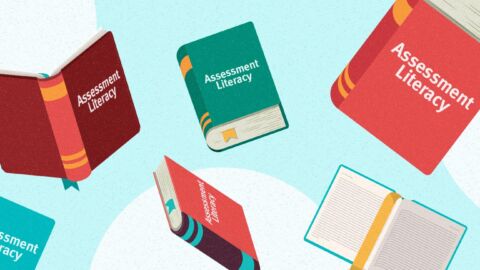Erika Landl (formerly Hall) strives to develop innovative, user-friendly frameworks and procedures that operationalize best practice related to the design, implementation and validation of assessments and accountability systems. Since joining the Center in July 2012, she has worked with several states to articulate coherent, defensible theories of action aligned to state goals and policy initiatives, and has developed user-friendly resources that support the evaluation and refinement of educator evaluation and school accountability systems. She has consulted on the design of innovative assessments, including those for Career Technical Education; generated papers summarizing current practices related to the evaluation of educators in non-tested grades and subjects, and supported individual states and consortia in drafting detailed Requests for Proposal (RFPs). Most recently Erika developed a tools and process to support the evaluation of large scale summative assessments against CCSSO’s Assessment Quality Criteria.
She is the lead on multiple technical advisory committees including Pennsylvania and Arkansas, and frequently develops white papers and presentations for technical and non-technical audiences at the national, state and local levels.
Erika previously served as a Senior Research Scientist at Pearson, where she was lead psychometrician for a variety of state and national assessment programs. During her 13 years at Pearson, she was responsible for the planning, management and coordination of the full array of psychometric activities necessary to sustain a large scale assessment program, including test design and development, scaling and equating, item and test analysis, parameter estimation, standard setting, the development of reliability and validity research, report design, and the creation of technical documentation.
Erika received a Ph.D. in Educational Measurement and Statistics from the University of Iowa.
Erika Landl is committed to helping state and national clients understand and articulate the design implications of their assessment and accountability systems.
Recent and Relevant Publications
Landl, E., & Lyons, S. (2023). Choosing the Right Tests: The District Assessment Procurement Protocol (DAPP) EdReports.org, Center for Assessment, Lyons Assessment Consulting.
Landl, E., Evans, C., Domaleski, C. (2020). One Size Doesn’t Fit All: Dealing with Exceptionality in State Accountability Systems. A white paper prepared for the Council of Chief State School Officers CCSSO. Accountability Systems and Reporting (ASR) State Collaborative.
Landl, E. (2020) Alignment Challenges within the Context of Federal Peer Review. Educational Measurement Issues and Practices, Vol.39, Issue 2, pp 23-27.
Evans C.M., Landl E., Thompson J. Making sense of K-12 competency-based education: A systematic literature review of implementation and outcomes research from 2000 to 2019. Journal of Competency-Based Education. 2020;5:e01228.
Hall, E. (2017) Identifying a School Quality/Student Success Indicator for ESSA: Requirements and Considerations. A white paper developed for the Council of State School Officers. Washington DC: CCSSO. CCSSO SQSS Brief
Hall, E., Domaleski, C., Russell, M., Pinsonneault, L., (2016) A Framework to Support Accountability Evaluation. A Framework to Support Accountability Evaluation
Hall, E. & Lyons, S., (2016). A guide to Evaluating College and Career Ready Assessments – Focus on Test Characteristics. CFA TestCharacMethod Eval Method Final
Hall, E. & Diaz-Bilello, E. (2015). Considerations for Establishing Performance Standards for Educator Evaluation Systems. Establishing Performance Standards for EES EH2015
Hall, E., Gagnon, D., Schneider, C.M., Thompson, J., Marion, S. (2014). State Practices Related to the Use of Student Achievement Measures in the Evaluation of Teachers in Non-Tested Subjects and Grades. A paper developed for the Bill & Melinda Gates Foundation. Gates NTGS Hall 082614
Hall, E. (2014). A Framework to Support the Validation of Educator Evaluation Systems. A Framework to Support the Validation of Educator Evaluation Systems EH071114









